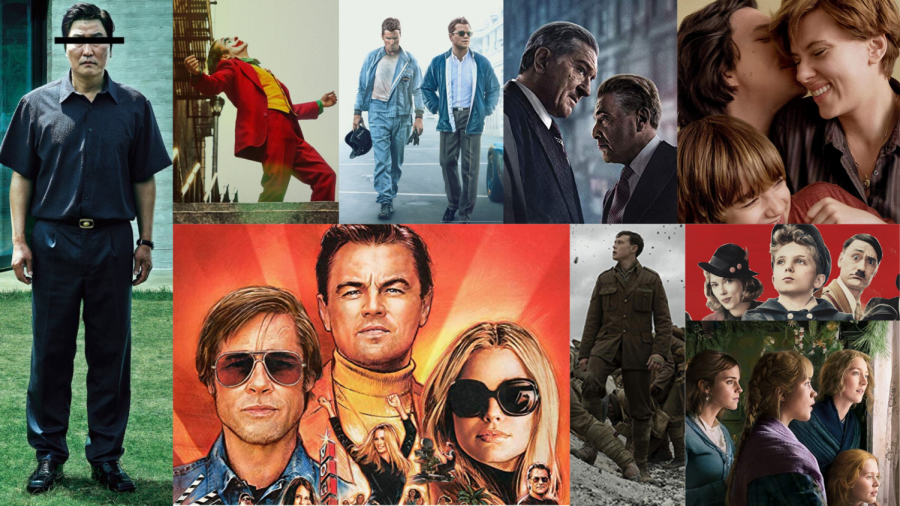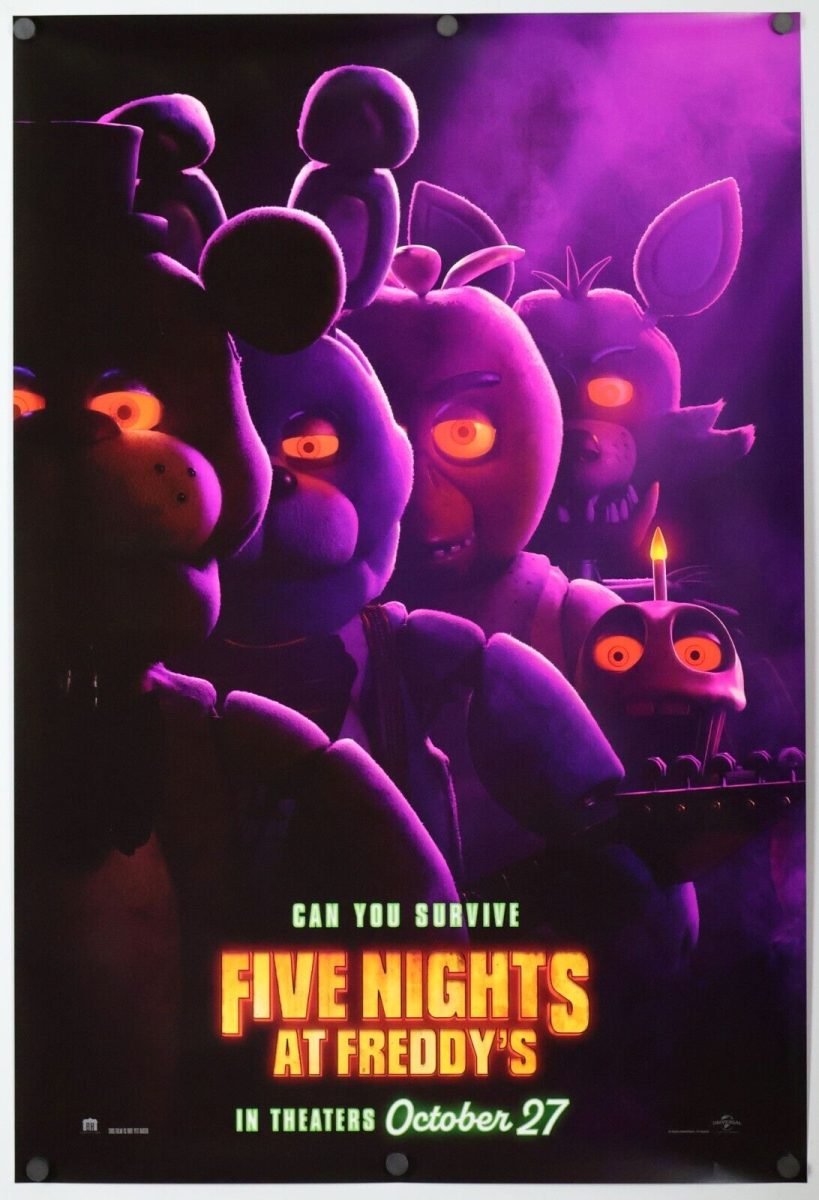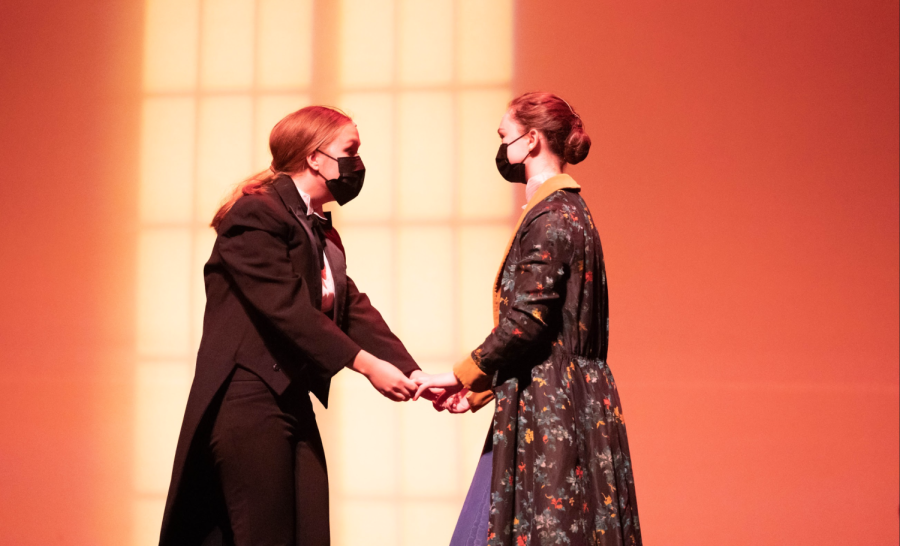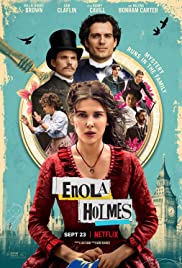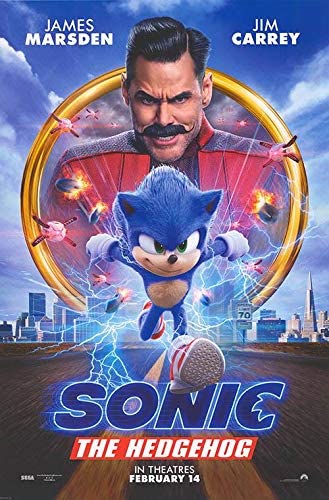Even with best-of lists long past and a year full of exciting movies coming up in 2020, it’s important to consider just how good 2019 was for film. From the blockbuster spectaculars of “Avengers: Endgame” and “Star Wars: The Rise of Skywalker” to the seemingly out-of-nowhere successes of “The Farewell” and “Knives Out,” 2019 has cemented its place in film legacy as one for the ages. And nowhere was this more apparent than at this year’s Oscars, where “Parasite” became the first film not in the English language to win Best Picture, beating out both favorites and assumptions about the industry.
But, in a year so packed, was it truly the best out of the nominees? Here’s a ranking of each of last year’s best picture nominees, riveting historical dramas and emotional roller coasters alike.
- Ford v. Ferrari
When it comes to pure entertainment, “Ford v. Ferrari,” directed by James Mangold, certainly deserves consideration. It tells the story of the Le Mans 66 race, where engineer Caroll Shelby (Matt Damon) and driver Ken Miles (Christian Bale) were hired by Ford to build a car that could beat Ferrari. And while the film’s engine may sputter occasionally, it’s never enough to drive it off track. Buoyed by both Bale’s performance and the excellent race scene editing, “Ford v. Ferrari” fulfills all the requirements a good sports film should do; it’s inspiring, engaging and has nothing terribly wrong with it. But unfortunately, that’s part of the problem— while there’s nothing particularly bad, there’s nothing amazingly good either, and spread out over two-and-a-half hours, the film drags at multiple points. In a way, the film is like driving itself; exciting at first, but gradually generic and forgettable.
- Joker
If “Ford v. Ferrari” is safe to a fault, then “Joker” must be its opposite, provocative and controversial more than any other film last year. Directed by Todd Philips and starring Joaquin Phoenix in the title role, the movie is a bleak and disturbing parable of social unrest and mental health, detailing yet another origin story for the character. Above all, the film succeeds due to one factor alone: Joaquin Phoenix’s mesmerizing performance. He reportedly lost over 50 pounds to play the role, and that effort seeps through into every aspect of his acting, from the way he delivers dialogue to his much-memed dances. The strength of this performance cannot be overestimated. Because it nearly single handedly saves this film from being a ruthlessly cynical, faux-political tale that doesn’t entertain as much as disturb. While it appears to make statements about wealth inequality, mental illness and Antifa, “Joker” doesn’t exactly have as much to say as it has intention to provoke empty outrage. At the last Oscars, it won for Best Lead Actor and Best Score, both extremely well-deserved awards. But two excellent parts don’t make an enjoyable whole.
- Once Upon a Time in Hollywood
While Quentin Tarantino is notorious for his foul dialogue and shocking violence, in “Once Upon a Time In Hollywood” he made the best fairy tale of the year. Set in 1969 Hollywood, the film follows actor Rick Dalton (Leonardo DiCaprio) and his stunt double Cliff Booth (Brad Pitt) as they have various misadventures around town. From the golden-hued scenery to the title itself, the film evokes a sense of storytelling and fantasy that recalls a different era. “Once Upon A Time In Hollywood” is nothing if not nostalgic, and with a series of sturdy performances and direction, it manages to make what could have easily been a meandering mess into a more focused film. It’s still very wandering, but the world and its inhabitants are so inviting that you can’t help but stay engaged, and it’s likely one of the funniest of the nominees. It’s Tarantino building his own mini-Hollywood, seen through rose-colored glasses. Which makes the revisionist ending all the more shocking— and wonderfully fitting.
- Jojo Rabbit
If someone described “Jojo Rabbit” with little context, the premise might seem absurd or even offensive. The film chronicles the misadventures of Jojo (Roman Griffin Davis), a young member of the Hitler Youth during the late stages of WWII whose imaginary friend just happens to be Adolf Hitler (Taika Waititi, also directing). However, when he discovers his mother (Scarlet Johanssen) is hiding a young Jewish girl (Thomasin McKenzie), it challenges his conceptions and makes him confront his nationalism. The film taps into a very specific brand of absurdist comedy that remains hilarious throughout, and it does a fantastic job of mixing humor and heart. The satire elements work fairly well, but it doesn’t go much further than simply mocking and making fun of fascists— there’s comedy but not too much insight. Still, with an excellent child performance and emotional ending, Jojo Rabbit manages to work as a oxymoron; a feel-good Nazi movie.
- The Irishman
Clocking in at three and a half hours, Martin Scorsese’s Netflix mob movie certainly deserves the term “epic”. It retells the life of Frank Sheeran (Robert De Niro), a mafia hitman who claims to have killed Union leader Jimmy Hoffa (Al Pacino) in the mid-20th century. For most of its runtime, “The Irishman” follows what you’d expect from a Scorsese crime movie— it’s intriguing and darkly funny, propelled along by intriguing characters and a complex plot. But in the last hour, as Frank gets older and his previous associates go their separate ways (usually to the grave), the film shifts entirely. It becomes a mournful mediation on aging and watching the world go by, the crime drama of before now seeming more and more inconsequential. It’s in this last part “The Irishman” truly shines, as the film expands from simply being about our characters to Scorsese himself, ruminating on the past. The runtime may put some off, but the recontextualization of the ending and increasingly complex performances make it worth watching tenfold.
- 1917
“1917” is a classic example of an excellent concept done perfectly. The movie follows two British soldiers in WWI who are tasked with delivering a warning to a fellow platoon before they venture right into the enemy’s trap. However, the crucial twist is that “1917” is filmed as if it was one-shot with no visible cuts, meaning their journey essentially plays out in real-time. Directed by Sam Mendes and filmed by cinematographer Roger Deakins, the one-shot trick makes “1917” much more tense than it would be otherwise and gives it a sense of spectacle rarely seen in modern action films. One scene in particular, of a French town illuminated entirely by flares, will undoubtedly go down as one of the best-looking and most awe-inspiring scenes in recent film history. This fantastic camerawork, in addition to a great score by Thomas Newman, mostly carries the film past a one-note story and undeveloped characters, and allows the movie to essentially get a pass on what one would normally expect from a critically-acclaimed film. “1917” certainly isn’t for everyone, and people going in expecting complex themes and plots might come away disappointed. But when it comes down to the pure technical impressiveness and immersiveness the film provides, it’s well-deserving of acclaim.
- Little Women
Since its publication in 1868, Lousia May Alcott’s book “Little Women” has inspired over six film adaptations and even more television versions. So, when Greta Gerwig announced her second directing project would be yet another adaptation, there was some rightful concerns over whether anything new could be added to the material. The answer? Absolutely. The adaptation, as always, focuses on the March sisters and their various adventures in friendship and life in Civil War era America, with Saoirse Ronan, Florence Pugh, Emma Watson and Eliza Scanlen playing the four leads. The film’s major triumph comes in the way it restructures the novel into two separate timelines, and threads them together to further its character development and pacing. Through stark color palettes, nuanced acting and a dynamic score, the film juggles it’s many plotlines effortlessly and never leaves the audience dazed or confused, all while telling the emotional and beautiful tale of the family through various difficulties. Even as audiences settle in to the comfortable and heartwarming story though, the film holds one final surprise in its delightfully meta and empowering ending that is a sharp subversion of any audience expectations. It’s an adaptation that dares to shift and even exceed the original, an exemplary work both of writing and about it.
- Marriage Story
In 2005, director Noah Baumbach made “The Squid and the Whale,” a film about a divorce from the children’s perspective. Now, 15 years later and after his own divorce, he’s come to the other perspective, and it’s as brutal as you might imagine. “Marriage Story,” titled in a bit of ironic comedy that runs throughout the film, follows the breakdown of Charlie (Adam Driver) and Nicole’s (Scarlett Johansson) marriage, and the grueling divorce procedure that follows. Unlike similar films, “Marriage Story” does a fair job in giving both sides time in a spotlight, and it never truly villainizes anyone except possibly the lawyers. It also gives a spotlight to the best co-performance of the year, with Driver and Johansson playing off of each other to both give gutting performances that highlight their strengths as actors. The true achievement, however, comes in the searing and devastating script that feels simultaneously like perfect melodrama and honest heartbreak. It’s difficult to watch, but so human and authentic you can’t help but hope for a good ending for all of these characters. Of course, it’s never that simple. And that’s probably when the tears start flowing.
- Parasite
To answer the question posed at the beginning of this article; yes, yes and unreservedly yes. It’s a rare treat for a film to cause laughter and gasps in the same minute. Yet “Parasite” does, and so much more. “Parasite,” directed by Bong Joon-ho, tells the tale of the poor Park family and the wealthy Kims, and the actions that bring them increasingly into each other’s orbits. If that description sounds opaque, that’s because to spoil any bit of “Parasite” is to take away from the pure joy of experiencing its mastery. It’s a disturbing delight that uses precise camerawork and characters to tell a tale of class and poverty, of the haves and have-nots. It never villanizes or outright states anything, only asks razor-sharp questions in order to interrogate what it means to be poor and what it means to be rich when those gaps are growing larger by the year. Shifting tones and genres at the drop of a dime, the movie finds nuance in the smallest of details and the largest of themes. But this isn’t some abstract arthouse movie— “Parasite” is extremely entertaining and thrilling, holding the audience on the edge of its seat and leading the viewer through increasingly complex, but never confusing, machinations and ideas. Foreign-language films traditionally have a hard time connecting with American audiences. But, as Bong said in an interview with Gulf News, “My movies are based in genre, which is a universal language. Everybody speaks it.” In a year full of excellent movies, “Parasite” was the only one that managed to connect audiences worldwide in universal experiences and themes, and capitalize on the true power of the motion picture. Hilarious, disturbing and most of all supremely entertaining, this is Bong— and filmmaking— at its peak.




